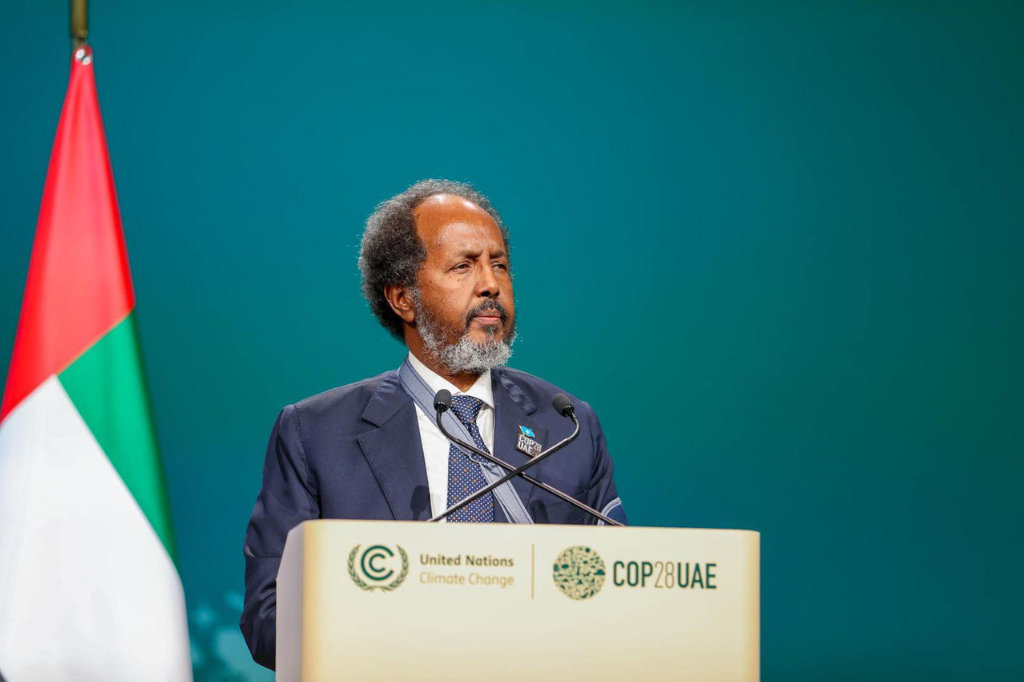
Garowe: Come for a visit, stay for the peace, calmness, and beauty
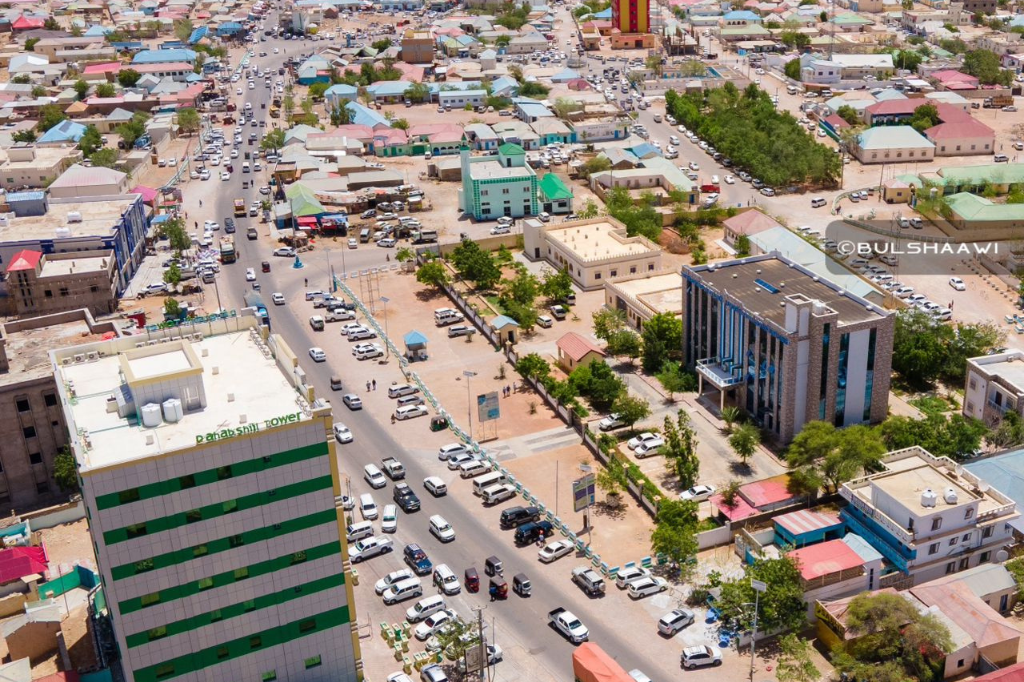
Driving through Mogadishu, one is always on a hight alert. If it’s not a check point manned by an unforgiving soldiers, abusive in both vocal and physical, one is forced to dodge the thousand tuk-tuks that seem to tickle the vehicles around them. Having lived in London for over 20 years, and last been there only a month ago, and having also lived in Mogadishu for the past two years continuously, I should be forgiven in conflating London and Garowe and thinking that I was driven around in the streets of North London, when I was jolted back to reality by a friend who tapped my shoulder to tell me about the beautiful building we just passed by was the Central Bank of Puntland. I think it was the calmness and the hustle-free roads that was responsible for my spatial teleportation.
It is not hyperbole or an exaggeration that the city has transformed significantly in just the past five years. I was first in Garowe in 2018 and it was a different city in many ways.
Access and roads
With almost all residential roads paved and stylish lights installed, it is a true pleasure to go for a joyride. Unlike Mogadishu, all major roads are open to the public. In Mogadishu, because of several government bases, one would have to unnecessarily take a little detour and drive through the highly congested Hamar Weyne District just to go to the beach. In Garowe, blocking a road for any reason is a scandal in itself. Abdiweli Ali Gas, former Somali Prime Minister and former President of Puntland recently closed off a road because of the recent clashes and had to suddenly reopen as angry residents protested him.
In Garowe, you can somehow find a tuk-tuk when you need it but unlike in Mogadishu, they are not lined up as though they are part of some sort of a never-ending funeral procession. Most of the people who can afford prefer to drive, yet the streets seem empty. All major junctions are clear of people and hawkers. In contrast, in Mogadishu folks are selling khat in the middle of KM4 roundabout. Seriously, in the middle of a traffic roundabout. Other major junctions such as Bar Ubah, Black Sea, Banaadir, Soobe, and Taleeh to name a few, are used as either makeshift bus stations or shopping districts, keeping the city in a perpetual gridlock.
Peace through maturity
For most of the people when Somalia is mentioned; war, buildings riddled with bullet holes, and famine-stricken children come to mind. However, in Garowe, this could not be further from the reality. Although there were some unfortunate recent skirmishes, the maturity of 20 years of stable governance finally prevailed. Puntland has one of the most robust governmental institutions in the country and the rock of this stability is the state’s elderly or ‘Isimmo’ as they’re known locally. They have an authority the mandated and elected president could only dream of. No politician or a group can reject their decrees. When politicians can’t reach a settlement, it’s the elderly that have historically calmed the waters.
Puntland also has an active civil society. I was invited to attend a Puntland Development and Research Centre (PDRC) discussion about the electoral stalemate. I was amazed at how lively yet respectful the debate was. Although both government and opposition leaders, some of them serious presidential candidates, in attendance, they spoke the least and listened to members of the public and civil society leaders. I saw no ego at display, only leaders who rightly saw themselves as the civil servants they are.
The weight and the significance of peace in Garowe will surely hit you when you visit the presidential complex. I was in Garowe for the last leg of my book tour. Friends hosted me and made me feel at home. It is these friends that invited me to attend the July First Independence Day celebrations. We drove along a beautifully landscaped road that led to the State House. Security personal checked our car and told us where to park. Coming from Mogadishu, I was shocked that a civilian vehicle could just drive into and park in the presidential complex. With some basic security checks; a scan and a pat down, we were already walking around the palace grounds. All we needed to sit right next to the president was our invitation cards.
After the event was over, a friend informed me that I will meet the President, Said Abdullahi Deni, at his residence. I was a little bit tired, so I contemplated if I could go through the hustle of meeting a president, usually layer upon layer of security checks. The friend must have sensed my reluctance when he reassured me that it will only take a few minutes. After a short and leisurely walk, I was sat in a brightly lit living room with other guests that came to take a photo with the president.
The room was full of everyday people that just walked over there to say hello and grab a photo with the President. Folks patiently waited for their turns. The President was amiable and all smiles. He cracked jokes and seemed to enjoy the interaction with his people. “This is why I could never be president” I said sotto voce. I love my personal space too much to be this open. (This passage will surely come back to haunt me if I ever run for an office). After, a while the president walked over to where I was sitting, sat next to me, and after our hellos, asked me to tell him about the novel. As someone who came from academia, the president seemed to be genuinely interested. I had a hunch that he already heard about the book. I gave him a signed copy and told him that I won’t take much of his time; after all, the queue of people waiting for him was getting longer. The welcoming vibe, the overtly vibrant governance steeped in genuine provision of public services, this was the night that prompted me to write this piece.
I was due to return as soon as my book event was over, but I had to remain for a few more days to enjoy the city. Unlike in 2018, Garowe now has countless hotels, restaurants, and cafés. There’s a beautifully designed café in every corner, it seems.
Security personnel
Throughout the city as well as sensitive locations like the airport, the calmness and professionalism of the police and other security personnel were a shock to my Mogadishu resident system. The police would greet us and simply do their jobs. To put our outsider minds at ease, some would crack friendly jokes about everyday things or their city. In one too many times, I was moved by their kindness and friendliness. After all, I came from Mogadishu, a city whose police kill innocent hawkers or other road users to simply clear traffic.
This piece is not meant to bash Mogadishu, but the contrast of two cities from the same country begs you to compare. Granted that Mogadishu is much bigger city both in population and in size, and the security issue is real problem, but I don’t see why selling shoes and khat in the middle of a junction has to do with security. In Mogadishu, so much can be done to improve the quality of life of Mogadishans, but with seemingly endless supply of insouciant leaders, I just don’t see it happening anytime soon.
There is so much to love about Mogadishu, and to this day, despite all of its ills, remains my favourite city. Acknowledging Mogadishu’s pitfalls will only make it a better city. Honesty might be the reason for Garowe’s improvement as its residents rarely sugarcoat its problems. They rather face the truth and fix it than make a song and dance about how great it is. Long live Garowe, long live Puntland, long live Somalia, and may Allah return Mogadishu to its former glory.
Sakariye Cismaan
Related Articles


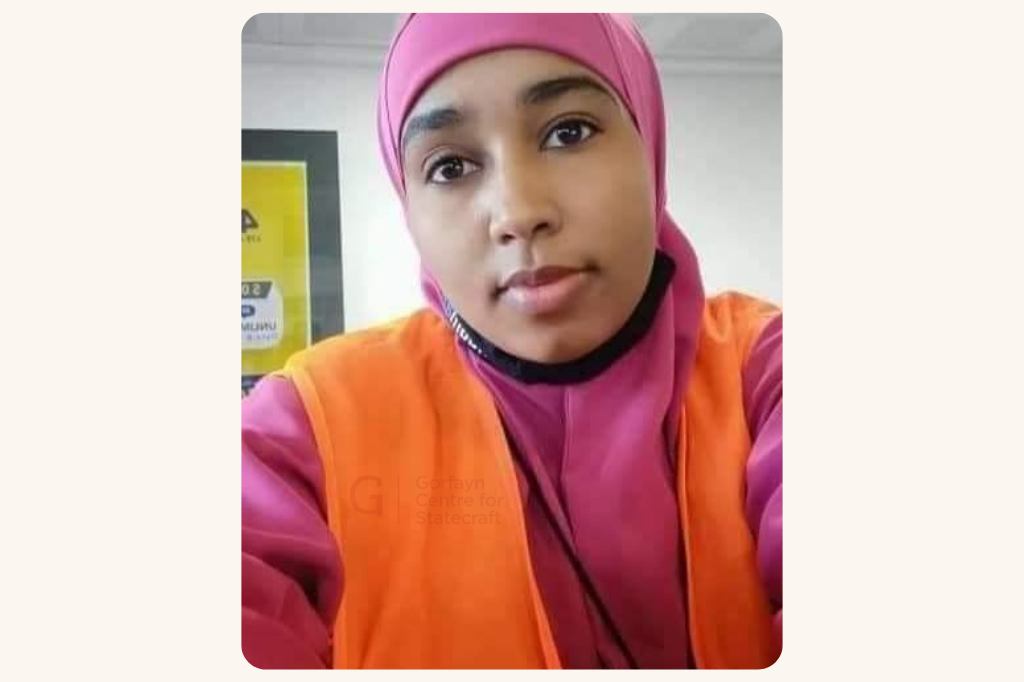

Somalia’s Single-Use Plastic Bag Ban Was Long Overdue
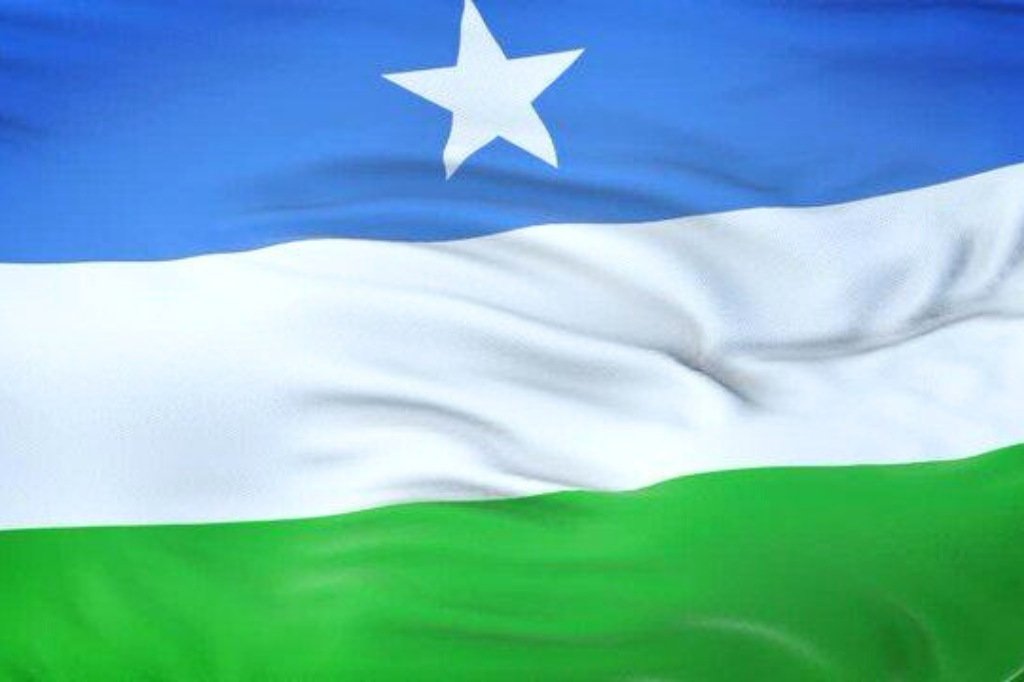
Election in Puntland: A Historical Overview
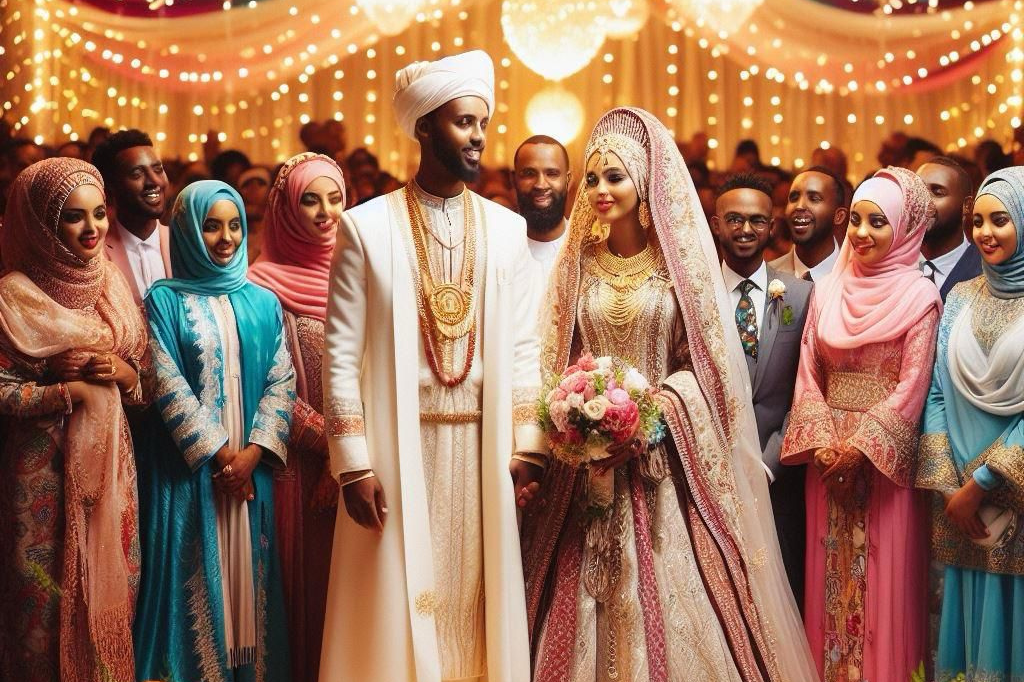
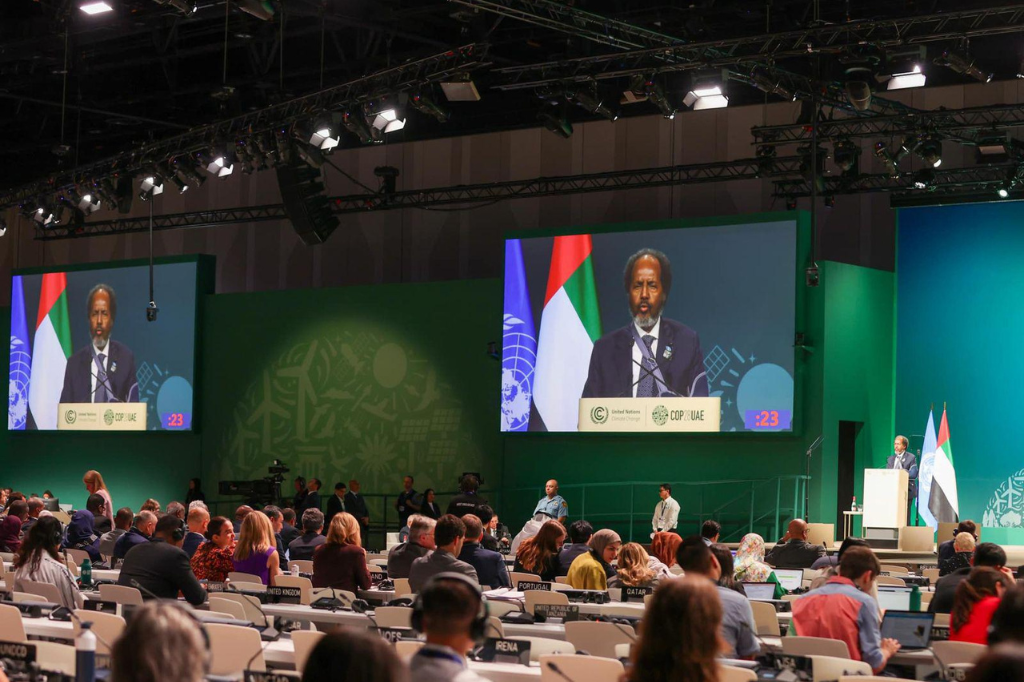
Somalia at COP28 Recap: Key Highlights and Outcomes
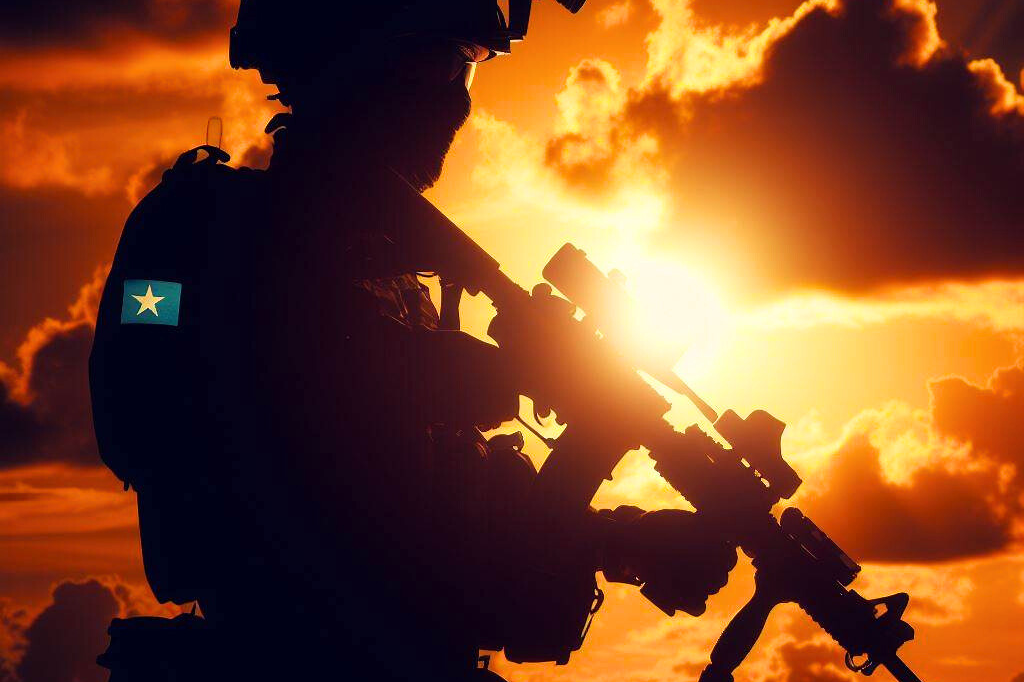
Breath of Fresh Air: The Force Behind Mogadishu’s Newfound Security
